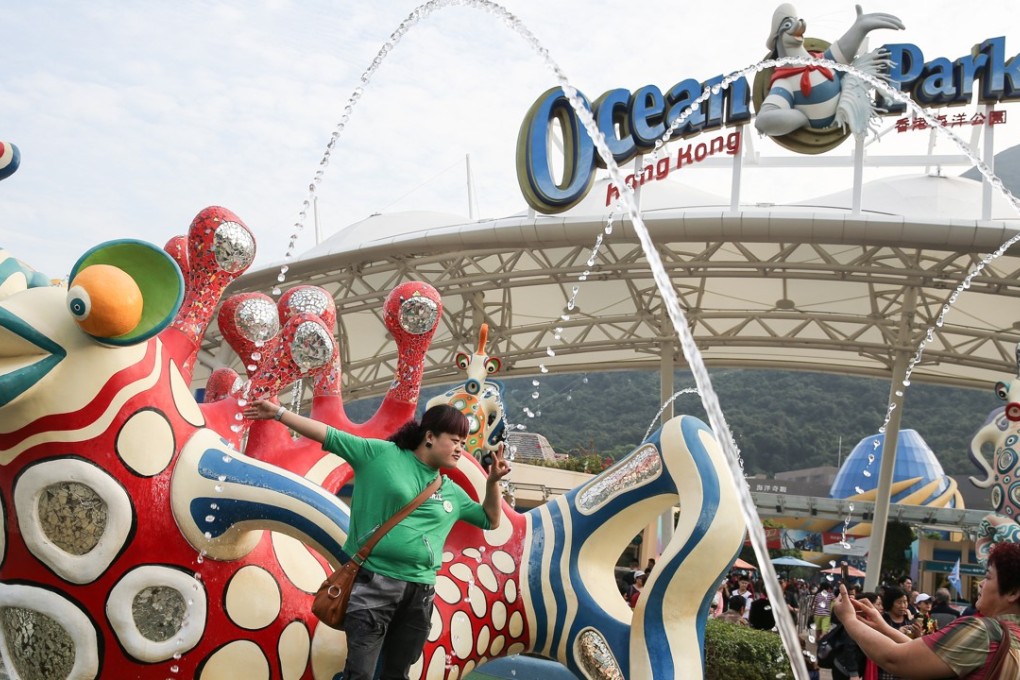Advertisement
Government to bail out Hong Kong’s Ocean Park with HK$310 million cash injection
City to fund special projects at loss-making park, as well as giving away free tickets to 10,000 students, among other tourism boosts unveiled in annual budget
Reading Time:3 minutes
Why you can trust SCMP

The government will bail out loss-making Ocean Park to the tune of HK$310 million, including paying for 10,000 free tickets for students, it was announced on Wednesday.
Financial Secretary Paul Chan Mo-po’s unprecedented initiative – unveiled during his annual budget – is part of a HK$706 million package to freshen up Hong Kong’s waning image as a tourism hub and lure big-spending visitors from places other than mainland China.
Other measures which might indirectly boost the local tourism market include a proposed e-sports hub, museum expansions and extra cash to preserve cultural heritage.
Advertisement
Tourism is seen as one of the four pillars of Hong Kong’s economy. It contributed HK$116 billion, or 5 per cent, to the city’s GDP in 2015, employing 267,000 people.
But many are concerned that an unbalanced mix of tourists could hurt the industry’s stability and long-term growth. Out of 58.5 million visitors to Hong Kong in 2017, 76 per cent were from mainland China, underlining the city’s heavy reliance on guests from north of the border.
Advertisement
The imbalance has been made particularly clear for Ocean Park in recent years, during which a drop in the number of mainland visitors led to a drop in attendance and a financial deficit for the attraction.
Advertisement
Select Voice
Choose your listening speed
Get through articles 2x faster
1.25x
250 WPM
Slow
Average
Fast
1.25x